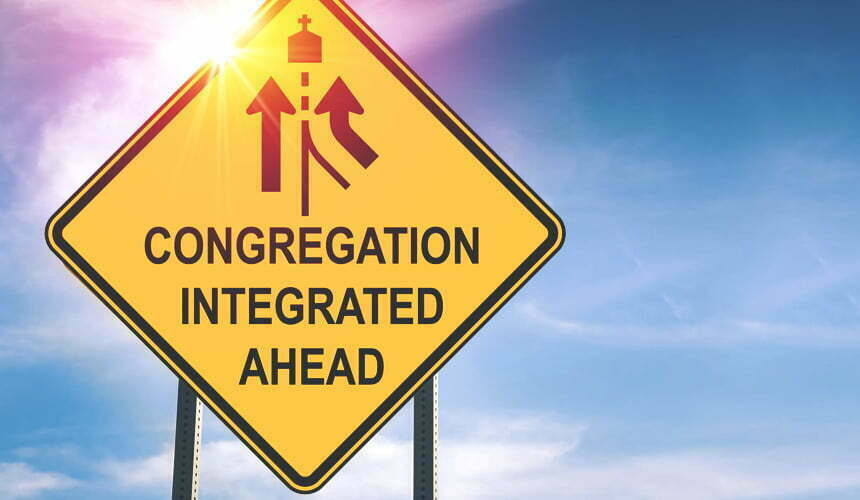

Romans 12:4-5 says, “Each of us has one body with many parts. And the parts do not all have the same purpose. So also we are many persons. But in Christ, we are one body. And each part of the body belongs to all the other parts.”
These verses are a good picture of integration.
Another name for this stage of integration would be inclusion. Schools mandate it and preach it as the win or the destination. Being integrated however is not yet the ultimate win in the church. It is very close to the destination, but it falls just short. More on that in the next step.
To be integrated would mean that people know of you and you know of others. Intimacy hasn’t been reached yet, but there is a positive movement away from merely being tolerated.
To be integrated means that you are actively involved in some components of the life of the church. People with disabilities are participants in ministry, but not yet leaders in ministry.
In 1 Corinthians 12:22 Paul talks about the body of Christ. He writes, “On the contrary, those parts of the body that seem to be weaker are indispensable.”
No people group fits Paul’s description of the parts of the body that “seem to be weaker” better than the disability community. We have already discussed the negative narrative that exists around people who live with disability. It is very interesting that Paul uses this word “indispensable.”
Indispensable literally means something you cannot do without. Paul recognized that the church is not complete without people affected by disability. Paul would never have intended that people affected by disability would simply be tolerated and exist as part of the church. He would not have even pushed for them to be integrated. He would want even more for them.
The roadblock at this stage for people affected by disabilities is expectations. Individuals and families expect to be given every right and opportunity as anyone else in the church, and rightfully so! All people should be given the same opportunities to serve and use their unique giftedness within the body of the church. This, however, is where the breakdown between integration and embrace comes. Many churches that could be good at integration may still not be good at moving beyond seeing people affected by disability as the objects of ministry efforts. This leaves people with unmet expectations. People want more. People do not want to be objectified by being made the object of ministry efforts. People want the opportunity to be ministers and be actively involved in using their giftedness.
The roadblock at this stage for the church is resources. When you hear the word, resources do not automatically think of money. The roadblock of resources in this stage typically is more about manpower, training, space, and time. The church may have great intentions in this stage but may lack volunteers, training for those volunteers, designated space in the building, or enough time to get everything in place to empower people affected by disability to serve. The good news at this stage is that all these things can be overcome.
The key for both groups in overcoming the roadblocks of this stage is intentionality. Without intentionality, neither group will be able to progress to the final stop on the path, the destination of being embraced. It takes intentionality on the part of people affected by disabilities and their loved ones to keep efforting toward equal opportunities. Intentionally reminding leadership that they are indispensABLE to the body is a must. Intentionally reminding leadership that they have gifts that will benefit the church is also a must. The church must intentionally work at overcoming the roadblocks of resources. It can be done one step at a time.


